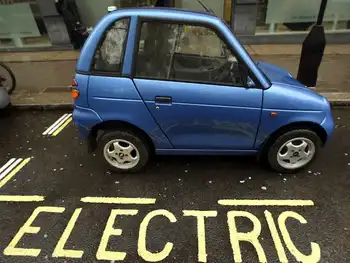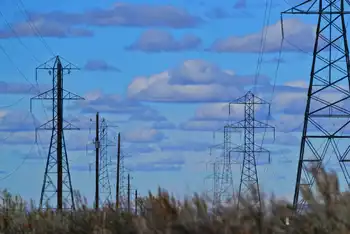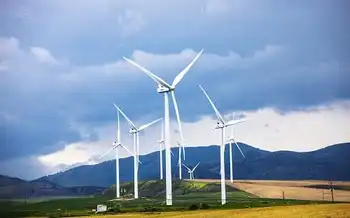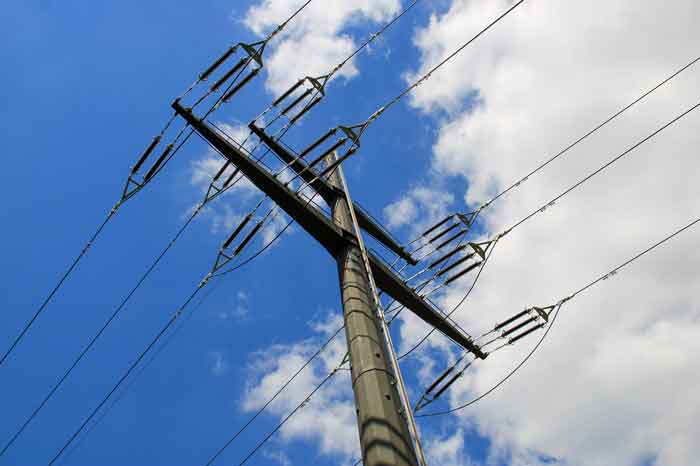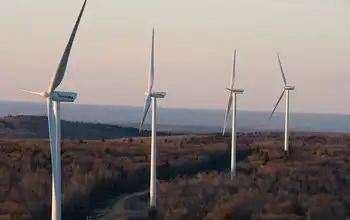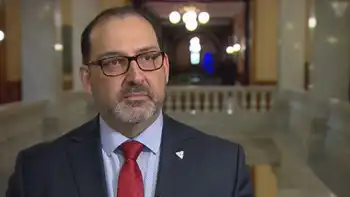Ambitious clean energy target will mean lower electricity prices, modelling says
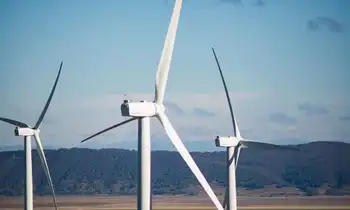
High Voltage Maintenance Training Online
Our customized live online or in‑person group training can be delivered to your staff at your location.

- Live Online
- 12 hours Instructor-led
- Group Training Available
Australia Clean Energy Target drives renewables in the National Electricity Market, with RepuTex modelling and the Finkel Review showing lower wholesale prices and emissions as gas generators set prices less often under ambitious targets.
Key Points
Policy boosting low emissions generation to cut electricity emissions and lower wholesale prices across Australia.
✅ Ambitious targets lower wholesale prices through added generation
✅ RepuTex modelling shows renewables displace costly gas peakers
✅ Finkel Review suggests CET cuts emissions and boosts reliability
The more ambitious a clean energy target is, the lower Australian wholesale electricity prices will be, according to new modelling by energy analysis firm RepuTex.
The Finkel review, released last month recommended the government introduce a clean energy target (CET), which it found would cut emissions from the national electricity market and put downward pressure on both wholesale and retail prices, aligning with calls to favor consumers over generators in market design.
The Finkel review only modelled a CET that would cut emissions from the electricity sector by 28% below 2005 levels by 2030. But all available analysis has demonstrated that such a cut would not be enough to meet Australia’s overall emissions reductions made as part of the Paris agreement, which themselves were too weak to help meet the central aim of that agreement – to keep global warming to “well below 2C”.
RepuTex modelled the effect of a CET that cut emissions from the electricity sector by 28% – like that modelled in the Finkel Review – as well as one it said was consistent with 2C of global warming, which would cut emissions from electricity by 45% below 2005 levels by 2030.
It found both scenarios caused wholesale prices to drop significantly compared to doing nothing, despite IEA warnings on falling energy investment that could lead to shortages, with the more ambitious scenario resulting in lower wholesale prices between 2025 and 2030.
In the “business as usual scenario”, RepuTex found wholesale prices would hover roughly around the current price of $100 per MWh.
Under a CET that reduced electricity emissions by 28%, prices would drop to under $40 around 2023, and then rise to nearly $60 by 2030.
The more ambitious CET had a broadly similar effect on wholesale prices. But RepuTex found it would drive prices down a little slower, but then keep them down for longer, stabilising at about $40 to $50 for most of the 2020s.
It found a CET would drive prices down by incentivising more generation into the market. The more ambitious CET would further suppress prices by introducing more renewable energy, resulting in expensive gas generators less often being able to set the price of electricity in the wholesale market, a dynamic seen with UK natural gas price pressures recently.
The downward pressure of a CET on wholesale prices was more dramatic in the RepuTex report than in Finkel’s own modelling. But that was largely because, as Alan Finkel himself acknowledged, the estimates of the costs of renewable energy in the Finkel review modelling were conservative.
Speaking at the National Press Club, Finkel said: “We were conservative in our estimates of wind and large-scale solar generator prices. Indeed, in recent months the prices for wind generation have already come in lower than what we modelled.”
The RepuTex modelling also found the economics of the national electricity market no longer supported traditional baseload generation – such as coal power plants that were unable to respond flexibly to demand, with debates over power market overhauls in Alberta underscoring similar tensions – and so they would not be built without the government distorting the market.
“With a premium placed on flexible generation that can ramp up or down, baseload only generation – irrespective of how clean or dirty it is – is likely to be too inflexible to compete in Australia’s future electricity system,” the report said.
“In this context, renewable energy remains attractive to the market given it is able to deliver energy reliability, with no emissions, at low cost prices, with clean grid and battery trends in Canada informing the shift for policymakers. This affirms that renewables are a lay down misere to out-compete traditionally fossil-fuel sources in Australia for the foreseeable future.”





